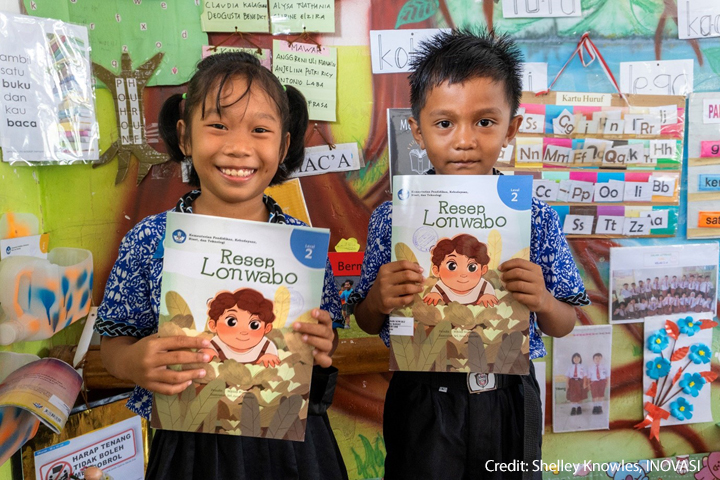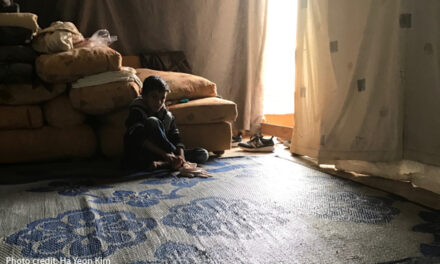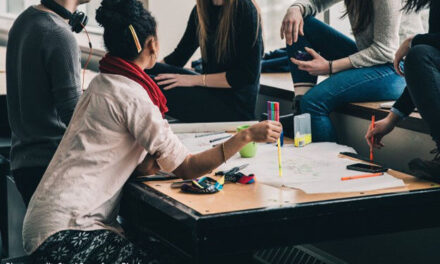This blog was written by Mark Heyward PhD, Program Director, INOVASI, and based on his presentation at the September 2023 UKFIET conference.
This brief article explores how Innovation for Indonesia’s School Children (INOVASI) used a problem-driven iterative adaptation (PDIA) approach to address learning loss and to support education reform in Indonesia.
INOVASI is an eight-year programme, managed by Palladium on behalf of the Australian government, through the Department of Foreign Affairs and Trade (DFAT). The programme is scheduled to end in December 2023. INOVASI played a key role supporting the Indonesian government to address COVID-19 related learning loss, and to develop and trial a range of transformative reforms, collectively known as Merdeka Belajar (Emancipated Learning). This includes a new curriculum, assessment and teacher development systems, religious moderation, and character education.
In such a vast education system, comprising over 50 million students and 3 million teachers, the success of these reforms is extremely consequential. INOVASI has focused on the foundational skills of literacy, numeracy, and character education. The Government of Indonesia has strengthened these skills in a COVID-19 emergency curriculum and now in Indonesia’s new national curriculum, Kurikulum Merdeka, the Emancipated Curriculum. Ultimately, improved learning outcomes will help Indonesia to improve its economy, stability, and welfare for its 280-million-plus citizens.
PDIA and the ‘triple-A’ analysis
Using an adaptive and responsive approach, INOVASI has become a close and trusted partner to Indonesia’s government. One of the keys to this success is the problem-driven iterative adaptation (PDIA) approach, developed by Harvard University’s Center for International Development. In the first phase of INOVASI, around half of the team completed the fifteen-week Harvard online course in PDIA. Key elements include local ownership, problem exploration, and iterative piloting of solutions.
INOVASI uses a ‘triple-A’ analysis to assess the space for change before co-designing and iteratively implementing politically-smart approaches to improve learning outcomes. Triple-A, drawn from PDIA resources, suggests that change requires authorisation, acceptance and ability. Where all three intersect, change is possible.
INOVASI works at both national and local levels. The following two examples illustrate how local pilots informed national policy and how national policy was piloted in local contexts.
Reading books for children
INOVASI collaborated with local governments and NGOs to explore the problem of poor literacy and to co-design and pilot solutions. This led to a reform of Indonesia’s policy and approach to provision of children’s reading books in schools and communities across the country.
In remote North Kalimantan, the team worked with government to test children’s reading abilities and found that only half of the children were independent readers by grade 4. INOVASI leveraged this literacy data to get buy-in from local government and to co-design and pilot a solution with stakeholders. The authority of local officials was needed to prioritise books and to change teaching practices. We harnessed the shock value of the literacy data to ‘make the problem matter’ to district leaders.
Problem exploration revealed that children lacked access to age appropriate and engaging books to read. This led to the establishment of school libraries and community reading centres. Introducing books and training teachers on differentiated reading instruction produced dramatic improvements in literacy levels. The success of the programme ultimately led to substantial changes in local and national policy on funding, approvals, and procurement mechanisms for children’s books.
Learning loss and a new curriculum
INOVASI and the Australian Council for Educational Research (ACER), worked with the Indonesian government to conduct a major study into COVID-19-related learning loss.
The pandemic hit Indonesia in March 2020. Indonesian schools were closed for nearly two years. In 2021, we tested 18,370 children in 612 schools in 20 districts across Indonesia. The study found that expectations in the previous national curriculum were far too high. Children were unable to keep up with the curriculum, and this problem was compounded by school closures.
In a sub-sample of 4,103 children in 69 schools, INOVASI measured learning outcomes from before the pandemic, one year into the pandemic and two years on. The study found that when teachers used a simplified curriculum, focused on the foundational skills of literacy and numeracy, and used diagnostic assessments and differentiated learning approaches, the rate of learning recovery doubled.
Findings from the study informed the government’s approach to learning recovery, and the Minister for Education used the evidence to gain support for the new ‘Emancipated Curriculum’.
Right place. Right time. Right approach.
INOVASI has significantly contributed to Indonesia’s comprehensive Merdeka Belajar (Emancipated Learning) reforms by using the adaptive PDIA approach to find out what works, improve learning outcomes, and build trusted relationships with local government and non-government partners.
Ahead of the national elections in 2024, the focus is now on supporting the government to ensure the sustainability of its comprehensive reforms – expanding the change space at a national level, building acceptance of the reforms by demonstrating proof of concept and building ability to implement the reforms.





